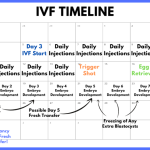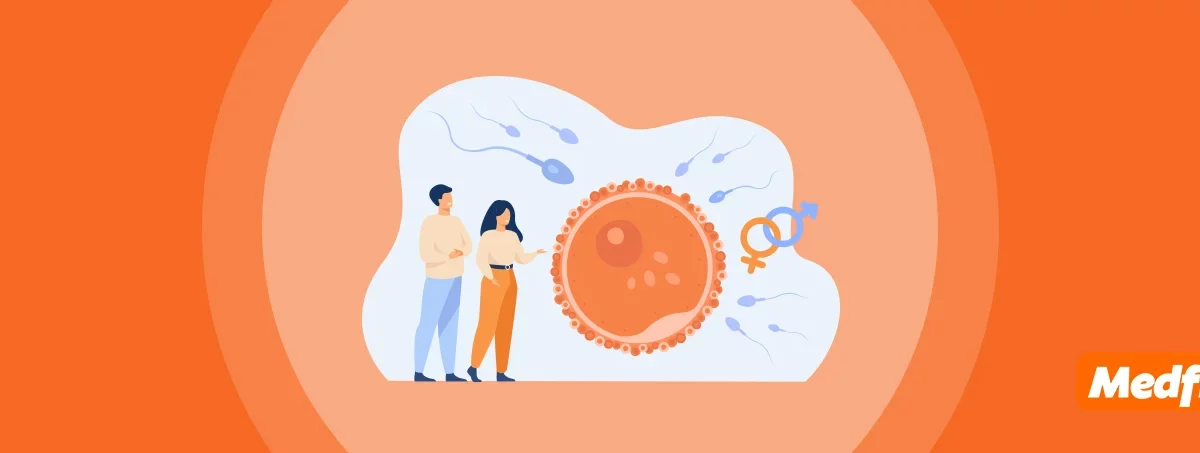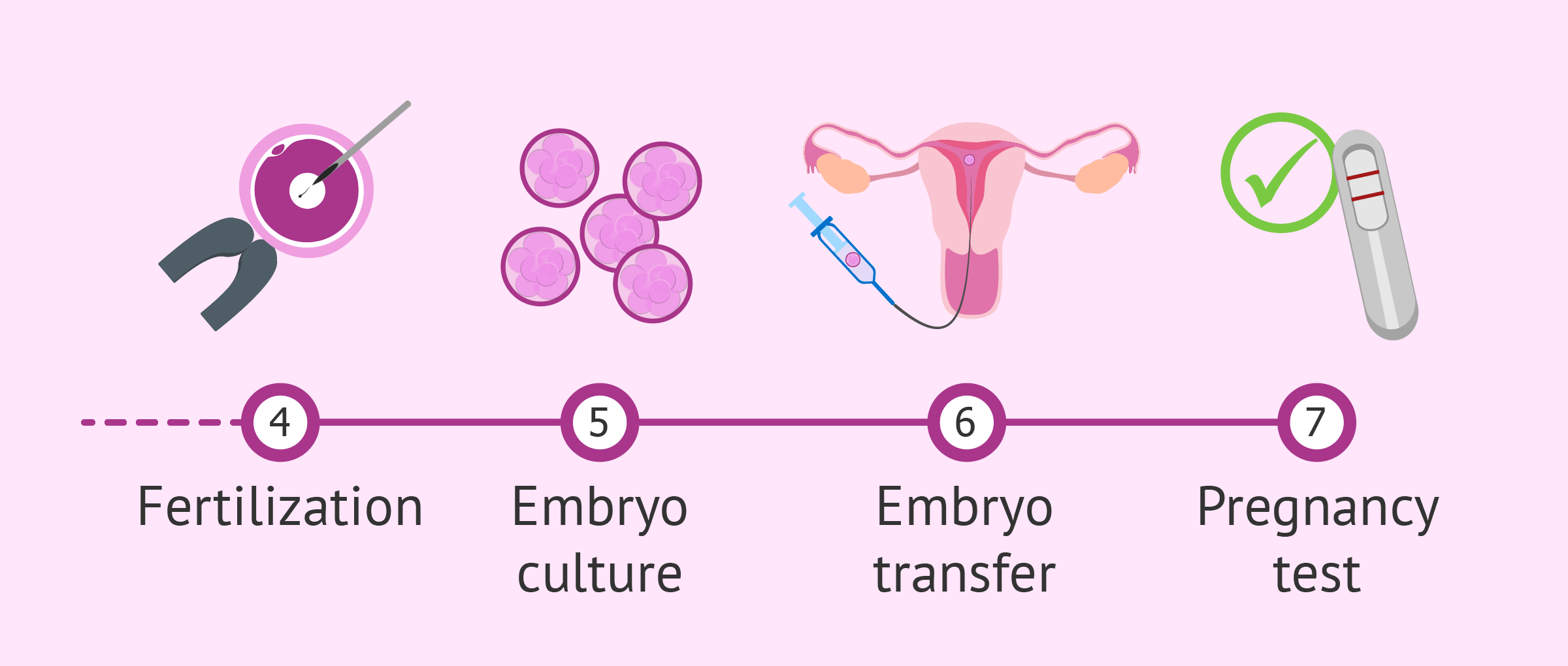
How Long Does the IVF Procedure Take?
April 15, 2025
How Much Does a Round of IVF Really Cost? Your Ultimate Guide to Understanding the Price Tag
April 16, 2025Is IVF Safe? Everything You Need to Know About In Vitro Fertilization

Is IVF Safe? Everything You Need to Know About In Vitro Fertilization
In vitro fertilization, or IVF, has been a game-changer for millions of people dreaming of starting a family. Since the first “test-tube baby” was born in 1978, this fertility treatment has helped bring over 10 million babies into the world. But with all the buzz around IVF, one question keeps popping up: Is it safe? If you’re thinking about IVF or just curious, you’re in the right place. This article dives deep into the safety of IVF—covering the process, risks, benefits, and the latest research—so you can feel confident and informed.
IVF isn’t just a medical procedure; it’s a journey filled with hope, excitement, and sometimes worry. Safety isn’t only about physical health—it’s about emotional well-being, long-term outcomes, and even the little details people don’t always talk about. We’ll explore all of that here, with fresh insights, practical tips, and answers to questions you might not find anywhere else.
What Exactly Is IVF and How Does It Work?
IVF stands for in vitro fertilization, which means “fertilization in glass.” It’s a process where doctors help eggs and sperm meet outside the body, in a lab, to create embryos. Then, one or more of those embryos are placed into the uterus, hoping for a pregnancy. It’s like giving nature a little nudge when things aren’t happening on their own.
Here’s a quick breakdown of how it works:
- Stimulation: You take fertility drugs to help your ovaries produce more eggs than usual.
- Egg Retrieval: A doctor uses a thin needle to collect those eggs from your ovaries (don’t worry, you’re asleep for this!).
- Fertilization: In the lab, the eggs are mixed with sperm—either from a partner or a donor—to create embryos.
- Embryo Transfer: A few days later, the healthiest embryo (or embryos) is placed into your uterus.
- Waiting Game: About two weeks later, a pregnancy test shows if it worked.
Sounds simple, right? But there’s a lot going on behind the scenes, and that’s where safety questions come in. Let’s dig into what makes IVF safe—or not—for you and any future baby.
Is IVF Safe for Your Body?
When you start IVF, your body goes through some big changes in a short time. The medications, procedures, and even the stress can make you wonder: Is this okay for me? Let’s break it down.
The Medications: What’s Going Into You?
IVF starts with fertility drugs, like follicle-stimulating hormone (FSH), to boost egg production. These meds are powerful, and while they’re generally safe, they can have side effects.
- Common Side Effects: You might feel bloated, moody, or have headaches. Most people say it’s like a super-charged period.
- Ovarian Hyperstimulation Syndrome (OHSS): This is a rare but serious risk. It happens when your ovaries overreact to the drugs, causing swelling and discomfort. Fewer than 5% of IVF patients get severe OHSS, according to the American Society for Reproductive Medicine (ASRM). Doctors watch for this closely and can adjust your treatment to lower the risk.
A 2023 study in Fertility and Sterility found that using gentler stimulation protocols—like lower doses of meds—cuts OHSS rates even further, down to about 1%. So, if you’re worried about this, ask your doctor about “mild IVF” options.
The Procedures: Are They Risky?
Egg retrieval and embryo transfer sound intense, but they’re routine for fertility specialists.
- Egg Retrieval: A needle goes through your vaginal wall to grab the eggs. It’s done under sedation, so you won’t feel it. Complications like bleeding or infection happen in less than 0.2% of cases, per the Mayo Clinic.
- Embryo Transfer: This is simpler—just a tiny tube placing the embryo in your uterus. It’s painless for most, though some feel mild cramping.
The risks here are super low, but they’re not zero. Clinics with experienced teams and good equipment make a big difference.
Your Long-Term Health: Any Hidden Dangers?
Some people worry that IVF might increase risks like cancer later in life. Here’s what the science says:
- A massive 2024 study from the National Institutes of Health (NIH) tracked over 100,000 women who did IVF. They found no link between IVF and higher rates of breast, ovarian, or uterine cancer after 20 years.
- Another concern is heart health. A 2022 report in the Journal of the American Heart Association noted a slight uptick in blood pressure issues during IVF pregnancies, but it usually goes back to normal after delivery.
So, for your body, IVF is generally safe. The key? Work with a doctor who tailors the plan to you and keeps an eye on how you’re doing.
Quick Tip: If you’re nervous about meds, talk to your doctor about “natural cycle IVF.” It uses fewer drugs and relies on your body’s own rhythm—less common but worth exploring!
Is IVF Safe for the Baby?
Okay, so IVF might be safe for you—but what about the little one you’re hoping for? Parents want to know their baby will be healthy, and that’s a big part of the safety puzzle.
Birth Defects: What’s the Real Risk?
Babies born through IVF do have a slightly higher chance of birth defects compared to natural conception—about 2-3% versus 1-2%, according to the CDC. But here’s the catch: Experts aren’t sure if IVF itself is the cause or if it’s tied to infertility issues some parents already have.
- A 2023 study in Human Reproduction found that using frozen embryos (instead of fresh ones) might lower this risk a bit. Freezing gives doctors time to pick the healthiest embryos.
- Common issues include heart defects or cleft lip, but these are still rare overall.
Multiple Births: Twins, Triplets, and More
IVF used to mean lots of twins or triplets because doctors transferred multiple embryos to boost success rates. Today, things are different.
- The Stats: About 15% of IVF pregnancies in the U.S. are multiples, down from 30% a decade ago, thanks to single embryo transfer (SET).
- Why It Matters: Multiples are riskier—think preterm birth or low birth weight. A 2024 ASRM report showed SET cuts these risks by 50% without hurting success rates much.
If you’re doing IVF, ask about SET. It’s safer for the baby and easier on you.
Long-Term Health: How Do IVF Kids Do?
Here’s the good news: Most IVF babies grow up just fine. A 2025 study from the University of California followed 5,000 IVF kids into their teens. They found no big differences in growth, school performance, or chronic illnesses compared to other kids.
- One small note: Some research hints at a tiny increase in asthma or allergies, but it’s not clear if IVF is the reason or if it’s something else, like genetics.
Interactive Quiz: What’s Your IVF Baby Safety IQ?
- True or False: IVF babies always have more health problems. (Answer: False—most are healthy!)
- What’s one way to lower risks for an IVF baby? (A: Single embryo transfer)
Take a second to guess, then check your answers—how’d you do?
Emotional Safety: How Does IVF Affect Your Mind?
IVF isn’t just physical—it’s an emotional rollercoaster. Feeling safe means knowing how to handle the ups and downs.
The Stress Factor
Between hormone shots, waiting for results, and the cost (about $15,000-$20,000 per cycle in the U.S.), IVF can feel overwhelming. A 2024 survey by Resolve: The National Infertility Association found that 70% of IVF patients felt anxious or sad at some point.
- Why It Happens: Uncertainty is tough. Will it work? Can I afford another try?
- What Helps: Talking to a counselor or joining a support group can make a huge difference. Clinics often offer these services—ask about them!
When It Doesn’t Work
Not every IVF cycle ends in pregnancy—success rates hover around 40-50% for women under 35, dropping as age goes up. That can hit hard.
- The Numbers: About 1 in 3 couples need multiple cycles, per the CDC.
- Coping Tip: Set small goals—like celebrating each step (egg retrieval, transfer)—to keep your spirits up.
Checklist: Your IVF Emotional Safety Plan
✔️ Find a friend or therapist to talk to.
✔️ Plan a fun distraction for the two-week wait.
❌ Don’t bottle up your feelings—let them out.
❌ Avoid comparing your journey to others’.
Emotional safety is just as important as physical safety. Give yourself grace—it’s a big deal.
What No One Talks About: Hidden IVF Safety Questions
Most articles cover the basics, but there are some lesser-known safety topics worth exploring. These don’t get enough attention, so let’s shine a light on them.
Does IVF Affect Your Future Fertility?
You might wonder if all those drugs and egg retrievals hurt your ovaries long-term. Good news: They don’t.
- A 2024 study in Reproductive Biomedicine Online tracked 1,000 women post-IVF. Their ovarian reserve (egg supply) stayed normal years later, even after multiple cycles.
- The exception? If you already have low egg count, IVF won’t “use up” your eggs faster—it just works with what’s there.
So, IVF won’t make it harder to conceive naturally later if that’s an option for you.
Are Frozen Embryos as Safe as Fresh Ones?
Freezing embryos is super common now—about 60% of U.S. IVF cycles use them. But is it safe?
- The Science: A 2025 meta-analysis in The Lancet compared 50,000 frozen vs. fresh embryo transfers. Frozen ones had slightly better birth outcomes (fewer preterm births) and no extra risks.
- Bonus: Freezing lets you space out pregnancies or try again later without more egg retrievals.
If your clinic suggests freezing, it’s not just convenient—it’s safe, too.
Can IVF Affect Your Partner’s Health?
IVF isn’t just about the person carrying the baby. Partners giving sperm samples or supporting you through it face their own stresses.
- A 2023 study in Psychology Today found that 40% of partners reported sleep issues or anxiety during IVF. It’s not physical risk, but mental health matters.
- Teamwork Tip: Do IVF as a duo—go to appointments together, share the load, and keep communication open.
This angle often gets overlooked, but a healthy partnership makes IVF safer for everyone.
How Safe Is IVF Compared to Natural Conception?
Let’s put IVF side-by-side with getting pregnant the old-fashioned way. It’s not apples-to-apples, but it helps to see the differences.
| Factor | IVF Pregnancy | Natural Pregnancy |
|---|---|---|
| Miscarriage Rate | 15-20% (higher with age) | 10-20% (similar range) |
| Preterm Birth | 10-12% (higher with multiples) | 8-10% |
| Birth Defects | 2-3% | 1-2% |
| Emotional Stress | Often higher due to process | Varies, usually less procedural |
IVF pregnancies have a few extra risks, mostly tied to multiples or infertility factors. But with modern techniques like SET, the gap is shrinking.

Latest Research: What’s New in IVF Safety?
Science moves fast, and IVF safety is getting better every year. Here’s what’s fresh in 2025:
- AI in Embryo Selection: Clinics are using artificial intelligence to pick the best embryos. A 2024 trial in Nature Medicine showed AI boosts success rates by 15% and cuts miscarriage risk by 10%.
- Safer Meds: Newer fertility drugs with fewer side effects are hitting the market. A 2025 study in Fertility and Sterility found they reduce OHSS by 30% compared to older options.
- Mental Health Focus: More clinics now offer built-in counseling, based on 2024 research showing it improves outcomes by reducing stress.
These updates mean IVF is safer today than ever. Ask your doctor what cutting-edge options they offer.
Practical Tips to Make IVF Safer for You
Want to stack the odds in your favor? Here are some hands-on ways to boost safety during IVF:
- Choose the Right Clinic: Look for high success rates and low complication rates. Check reviews or ask for their OHSS stats.
- Know Your Body: Tell your doctor about any health issues (like PCOS or clotting disorders) so they can adjust your plan.
- Go Slow: If you’re nervous, start with a mild IVF cycle—fewer drugs, less stress.
- Stay Healthy: Eat well, sleep lots, and skip smoking or heavy drinking. A 2023 study showed this ups your success rate by 20%.
- Ask Questions: Not sure about something? Speak up! Understanding your treatment keeps you in control.
Poll: What’s Your Top IVF Safety Concern?
- Medications
- Baby’s health
- Emotional toll
- Something else
Drop your vote in your mind and see if we’ve covered it here!

Real Stories: IVF Safety in Action
Numbers are great, but stories hit home. Here are two quick examples (names changed for privacy):
- Jenna, 34: “I was terrified of OHSS because I’d read horror stories. My doctor used a low-dose plan, and I barely felt bloated. My twins are 2 now—healthy and wild!”
- Mark, 41: “As the partner, I didn’t expect IVF to stress me out. But waiting for results was brutal. We started meditating together, and it saved us.”
These folks found ways to make IVF work safely for them. You can, too.
Wrapping Up: So, Is IVF Safe?
After all this, here’s the bottom line: Yes, IVF is safe for most people. The risks—like OHSS, birth defects, or emotional strain—are real but rare, and they’re shrinking as technology improves. For your body, the baby, and your peace of mind, IVF has a strong safety track record, backed by decades of data and millions of happy families.
Still, safety isn’t one-size-fits-all. It depends on your health, your clinic, and how you approach the journey. Talk to your doctor, weigh your options, and trust your gut. Whether IVF is your next step or just something you’re curious about, you’ve got the tools to decide.
What do you think—does this ease your worries or spark new questions? Either way, you’re not alone on this road. Millions have walked it, and the path keeps getting safer every day.

